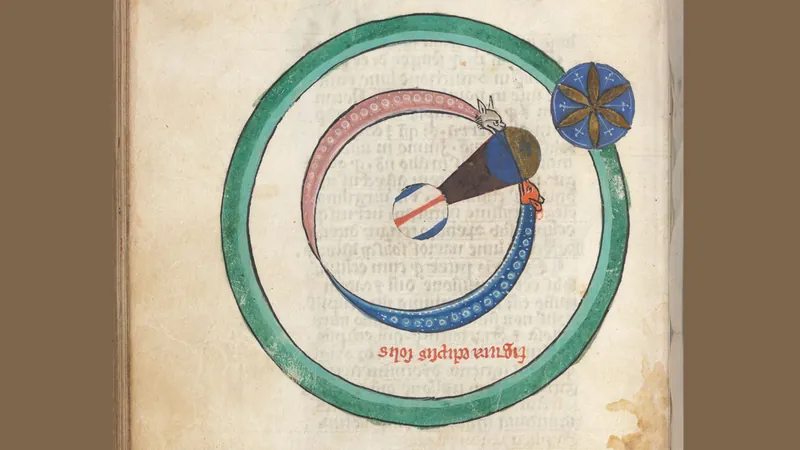
Unlocking the Secrets of Measurement: How Gravity Could Redefine the Kilogram Forever!
2024-12-16
Author: Sophie
Revolutionizing Metrology
In a groundbreaking development in the world of metrology, renowned physicist Claus Lämmerzahl from the University of Bremen and Dr. Sebastian Ulbricht from the Natural Metrology Institute have proposed a revolutionary idea that gravity could play a crucial role in defining fundamental units like the kilogram. Their findings, published in the prestigious Physical Review Letters, not only challenge traditional measurement systems but also pave the way for a new understanding of quantum physics.
A Seismic Shift in Measurement
The science of measurement experienced a seismic shift in 2019 when traditional units such as the kilogram, meter, and second were redefined based on quantum physics rather than physical artifacts. Previously, the kilogram was represented by a platinum-iridium cylinder stored in a vault in Paris, which had been the definitive measure of mass since the late 19th century. However, this reliance on a physical object was both limiting and problematic.
Connecting to Fundamental Constants
Now, the standards for these units are connected to fundamental constants of nature, allowing for a much more accurate and reliable framework. One impressive method of measuring the kilogram is through the innovative Kibble balance, which correlates mass to electrical values. This sophisticated scale measures mechanical power against electrical power, utilizing quantum effects like the quantum Hall effect and the Josephson effect to translate the results into standardized electrical quantities.
A Gravitational Perspective
Lämmerzahl emphasizes that although current methods trace units like the kilogram back to electrical units, there’s a tantalizing possibility that they could be realized using gravitational interactions instead. 'Think of the gravitational field as the equivalent to electromagnetic fields for masses,' he notes.
Profound Parallels
The parallels between electromagnetism and gravity are profound — both are fundamental forces described by fields that facilitate essential interactions in nature. In their recent publication, Lämmerzahl and Ulbricht introduce concepts such as the gravitational Josephson effect and the gravitational quantum Hall effect, opening exciting avenues for research.
Revolutionizing Mechanical Units
By adapting metrological practices originally designed for electromagnetism and applying them to gravitational contexts, the duo's work could revolutionize how we define and measure mechanical units, potentially offering an innovative path towards establishing units such as the kilogram in relation to gravitational force.
Implications for Science and Industry
This fresh perspective not only challenges established scientific wisdom but may also lead to advancements in various fields, from engineering to space exploration. Could this mean more precise measurements for everything from everyday goods to critical scientific experiments? The implications are colossal, and as scientists probe deeper into the mysteries of quantum physics and gravitational forces, the way we perceive and utilize measurements may never be the same again!
Stay Tuned!
Stay tuned, as this fascinating journey into the realm of measurement science continues to unfold!









 Brasil (PT)
Brasil (PT)
 Canada (EN)
Canada (EN)
 Chile (ES)
Chile (ES)
 España (ES)
España (ES)
 France (FR)
France (FR)
 Hong Kong (EN)
Hong Kong (EN)
 Italia (IT)
Italia (IT)
 日本 (JA)
日本 (JA)
 Magyarország (HU)
Magyarország (HU)
 Norge (NO)
Norge (NO)
 Polska (PL)
Polska (PL)
 Schweiz (DE)
Schweiz (DE)
 Singapore (EN)
Singapore (EN)
 Sverige (SV)
Sverige (SV)
 Suomi (FI)
Suomi (FI)
 Türkiye (TR)
Türkiye (TR)